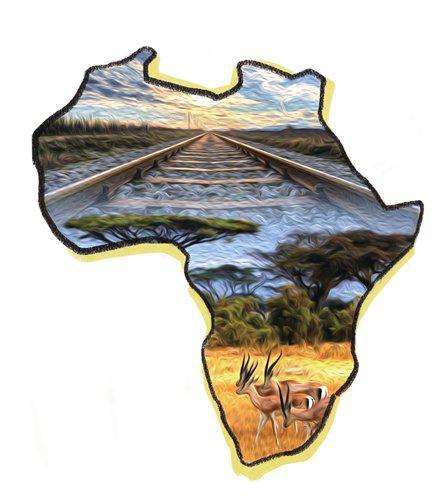In the wake of unpredictable, unstable and nationalistic global politics, it is becoming increasingly difficult to deny that China is a crucial stabilizing factor for a developing African continent.
Ideally, world political systems are meant to strengthen growth and development for the global good. But with traditional political alignments imploding, global politics is on shaky ground.
As the pull and push of Brexit continues and the US advances an aggressively nationalistic approach in foreign policy, the global stage is in a state of disarray.
Without a partner in China, the African continent, which has often looked for support and guidance from the West, would have been doomed.
As traditional aid structures grow increasingly uncertain because of being entangled in chaotic global politics, without China's commitment to the continent, there is no doubt that the situation would have been dire.
It is therefore very important to acknowledge that China will be the most certain partner in the foreseeable future.
Not only has the eastern nation taken on a more aggressive approach to foreign policy, China is unrelenting in its plan to open up the country to as many willing partners as possible.
China's five no approach has further endeared the eastern nation to the African continent.
This approach provides that the country will not interfere in the development paths of other nations or even in their internal affairs.
Very important to the continent, China is also keen not to impose its will. With regard to the immense support in aid and loans that Beijing has offered Africa, the country is adamant not to attach political strings.
Overall, the five no approach is clear that China will not seek selfish political gains from the vast investment and financing made in Africa.
African countries have firmly responded to this approach, turning 2018 into a particularly defining year for Sino-African relations.
This was especially visible during one of the most globally significant diplomatic events, the Forum on China Africa Cooperation held in Beijing in September.
With the exception of Eswatini, formerly Swaziland, all other African countries were well represented. African leaders were received with the diplomatic pomp and color befitting of an equal development partner.
A lot has been said about China's role in Africa particularly by critics who question the sustainability of the partnership.
Against this backdrop, the level of protocol witnessed during the September high-level dialogue meeting, degree and diversity of commitment is hard to ignore.
There was something for each of the 53 countries represented to take home in China's commitment to implement eight major initiatives with African countries in the next three years and beyond.
The initiatives cover crucial development areas such as industrial promotion and infrastructure connectivity.
Africa is as diverse a continent. Some countries, as they come, gravitate toward the exploitation of land-based resources to support their economies while others are now beginning to exploit their blue world.
This entails harnessing the potential of the oceans, seas, lakes and rivers. It is an area that many African countries endowed with rich water-based natural resources have only marginally exploited.
Kenya hosted the first global blue economy conference in late November attended by more than 7,000 delegates from around the world.
China was one of the countries that had donated millions of shillings to ensure the success of this crucial conference. China also held a side event during this conference and made it a point to highlight the need for a marine-friendly maritime cooperation.
The blue economy aligns with one of the eight initiatives to be implemented across Africa by China.
This is in the form of the eastern nation's commitment to support green development - an approach that gives consideration to the social and environmental impacts of development.
Africa's new development phase will therefore largely include the diversification of its economies and China will be crucial.
While 70 percent of African countries are either coastal or islands, with a coastline that is 31,000 kilometers long, African-owned ships still account for less than 1.2 percent of world shipping.
Shipping is an under-exploited sector across Africa but an area where China has excelled in.
According to the United Nations Conference on Trade and Development, approximately 80 percent of global trade by volume and 70 percent by value are transported by sea.
Of these, an estimated 60 percent of maritime trade volume passes through Asia. The South China Sea carries approximately 33 percent of global shipping. This contrast underpins the need for deeper South-South cooperation.
Nationalistic politics undermines global partnerships and in essence growth and development.
For countries in Africa that are still largely aid dependent, it is crucial to continue exploring South-South cooperation and make good use of the many lessons coming from the east.
(GLOBAL TIMES)

